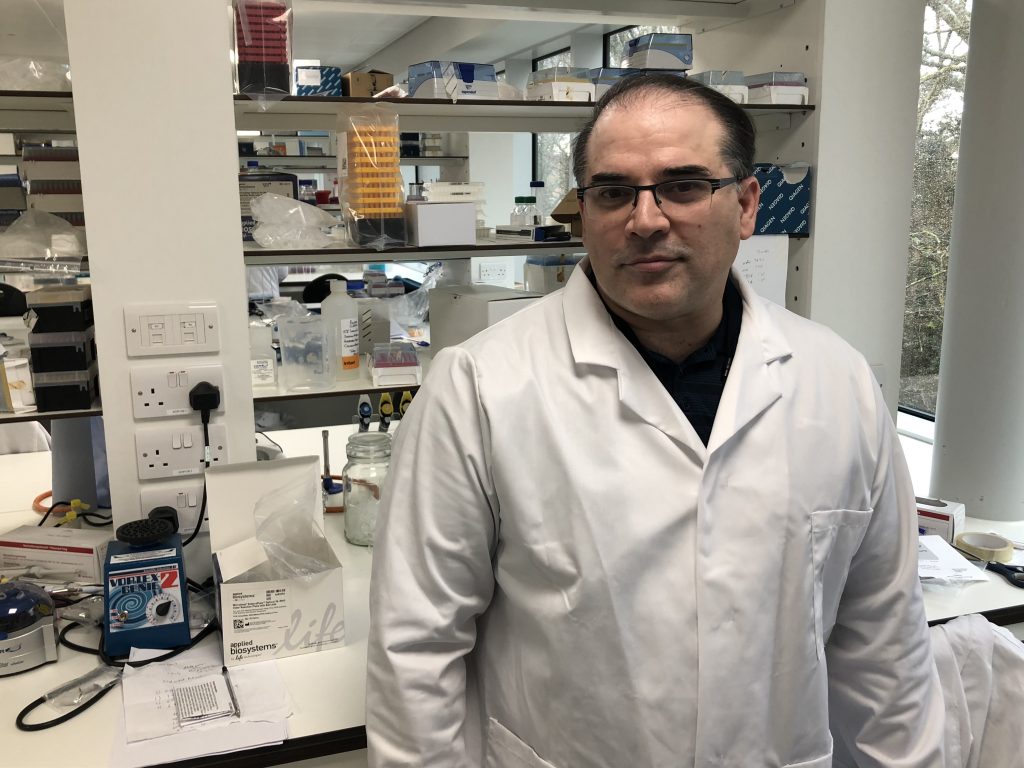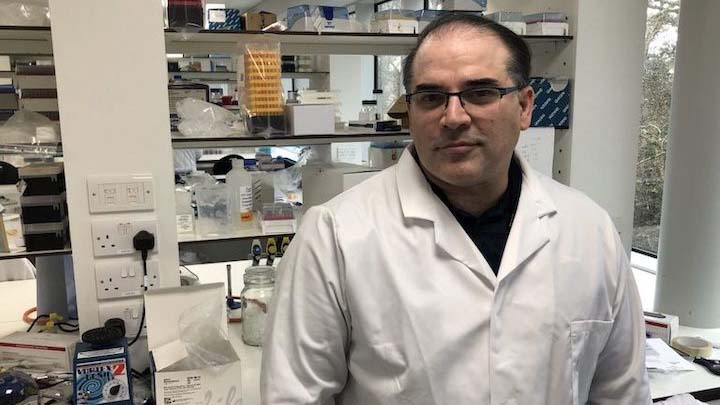Reader in Gene Delivery and Nanomedicine Dr Aristides Tagalakis has been working with scientists and clinicians from King’s College London and Hokkaido University in Japan, to develop a novel gene therapeutic that could vastly improve the surgery outcome for glaucoma patients.

The Kitty Heatley Memorial Research Prize and Medal acknowledges the incredible work undertaken by the team at Edge Hill University, including Dr Tagalakis and PhD student Kostas Kafetzis, and King’s College London whose research was led by ophthalmologist Dr Cynthia Yu-Wai-Man with assistance from postgraduate student Amisha Sanghani.
Dr Tagalakis said: “I’m elated that our work has been recognised in the Ophthalmology field and received this prestigious Prize and Medal. This is a big boost for our work to develop gene therapeutics and nanomedicines for ocular disorders.
“I have been working in the non-viral gene therapy field for many years and several products including vaccines and treatments for liver disorders are now widely available. Our hope is that one day we can have medications for many genetic conditions, including glaucoma.”
Discussing his role in the project, Edge Hill PhD student Kostas Kafetzis said: “I am very proud that our work has been recognised by a prestigious award. Starting the second year of my PhD, it is achievements like this that motivate me to continue my research unhindered, and hopefully there will be more to come in the future.”
Globally, glaucoma affects 76 million people, and it is the leading cause of irreversible blindness. Glaucoma causes the optic nerve, which connects the eye to the brain, to become damaged and can be caused by several factors including high pressure inside the eye. Sadly, glaucoma surgery is not a perfect solution and has a high failure rate of 50% after 5 years with a significant risk of scarring of the eye.
The promising new nanomedicine uses the same methods as existing mRNA vaccines made famous by the Covid-19 vaccine. It works by reducing the expression of the genes that cause scarring after glaucoma surgery. It is hoped that a gene therapeutic like this will have far fewer side effects than existing treatments, drastically improving the long-term success of surgery.
“Glaucoma is one of the most common causes of blindness in the world today. I think almost everyone knows someone who has been treated for glaucoma and for it to result in blindness is a terrifying thought.” Dr Tagalakis added.
The next step will be to perform extensive pre-clinical trials, a step which is necessary and important before a therapeutic modality can be tested in humans. The full research findings have been published in the highly regarded Pharmaceutics journal.
To discover more about our courses at Edge Hill, please visit ehu.ac.uk/study.
March 22, 2022



